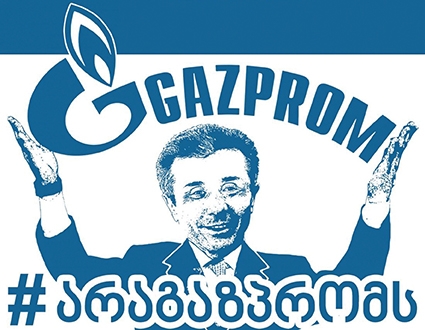Thomas De Waal on Gas & Politics
To take a closer look at some of the highly pressing issues currently circling in Georgia’s domestic and foreign affairs, we spoke to Thomas De Waal of Carnegie Endowment in Brussels.
How would you assess the recently signed deal between Gazprom and Georgia about the transit of Russian gas to Armenia?
I ‘m not familiar with the technical details of the agreement. This is a very complicated issue and gas contracts are very difficult, although it’s natural that people look for a political context. I would be a little cautious, though, to say that this has any major political implications. Gazprom has, for many years, passed gas to Armenia, giving a small amount of it to Georgia. This is again about the context of the fact that there is not enough output in Azerbaijan as it is using most of gas for its own internal consumption- especially in winter, there is not much available gas for Georgia. So here is a technical reason why Georgia needs to talk to Gazprom. I don’t think it is entirely bad. But the reason the Georgian government deserves criticism is for the fact that the government has made this deal in a non-transparent fashion. The public does not feel confident that it knows all the details; there is a general nervousness at the moment, generally about Russia in the context of the new US Presidency and what it means for Georgia. So, I understand public wants to know more but I’m not convinced there is a political plot with the Government of Russia.
Tell us how you see the recent UNM split? Why do you think it happened?
This is now a party that has lost two elections in a row, major elections, plus the Presidential and local elections. When a party loses an election, it needs to look at itself and ask what went wrong. And I guess there are two completely opposite conclusions here: the conclusion of the Saakashvili supporters that the elections were not fair- “we were cheated, and we need to fight harder, come out on the street, and protest” - and the conclusion of the others, including Giga Bokeria, that Saakashvili had become a problem and “we had not rebranded the party to become a post-Misha party, and that Saakashvili’s intervention in the elections a few months ago created a negative effect.” So, when you have this kind of disagreement, you naturally end up with a split. This is a natural process, but the problem with the anti-Misha group is that none of them are new forces, especially in Georgia: people know Bokeria, Ugulava and Bakradze; have known them for many years, and so they do not have the appeal of being fresh leaders. Having said that, I think it is healthy for a party to move away from its founder and a charismatic leader, and try to reorganize itself.
What lies ahead for US-Georgia relations under the Trump Administration?
This is obviously the big question. We don’t have answers; I don’t think Donald Trump himself has them, either. Trump wants to do something completely different; he is breaking 70 years of tradition with his comments about NATO and Europe; and obviously his fascination with Vladimir Putin is deeply troubling. But let’s be honest: you cannot run a country by Twitter. All we have is his comments. His nominee for Secretary of State basically repeated US ongoing policy towards Russia, the need to maintain sanctions, and talked about Russian aggression in Ukraine. So, what we are going to see is a conflict between President Trump and his ideas, and the US conservative political establishment which wants to keep the same policies. I doubt one man who is President will be able to change all these policies. I think the only thing we can say for sure is that we are in times of uncertainty when a lot of issues such as relations with Russia will be reviewed and revisited. Of course, this is bad for a country like Georgia which needs stability from the United States. But there are very strong links between Georgia and the US, especially the Pentagon and Georgia, and those cannot be washed away or cancelled so easily and so fast. Let’s just hope they continue as before.
You can follow Anna Kalandadze, Head of the VOA Georgian section on twitter at @anavoa or find more interviews via voanews.com/Georgian. The Georgian-language interview first appeared on VOA.
Anna Kalandadze, Voice of America’s Georgian Service












